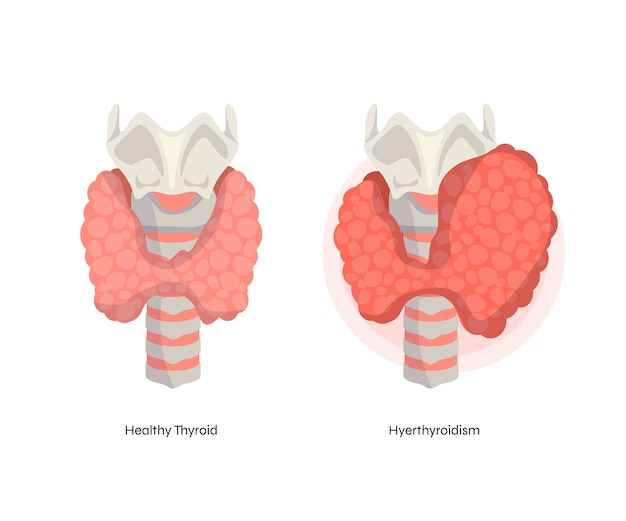30 Hidden Diet Mistakes Undermining Your Health After 30 — Thyroid-Smart Fixes, Weekly Goals & Safety Tips
Turning 30 is a powerful milestone—often marked by career growth, deeper relationships, and a growing awareness of long-term health. Yet, many women unknowingly make daily dietary choices that sabotage their energy, metabolism, and hormonal balance—especially thyroid function.
The thyroid, a small butterfly-shaped gland, plays a massive role in regulating metabolism, mood, temperature, and weight. When diet and lifestyle habits interfere with its function, the effects can be widespread. The good news? Most of these missteps are fixable with awareness and small, consistent changes.
Common Dietary Mistakes That Harm Thyroid Health

- Skipping breakfast regularly – This can disrupt cortisol and insulin rhythms, affecting thyroid hormone conversion.
- Over-restricting calories – Chronic low-calorie diets reduce T3 (active thyroid hormone) production.
- Consuming raw cruciferous vegetables daily – Raw kale, broccoli, and cabbage contain goitrogens that may interfere with iodine uptake.
- Not getting enough iodine – Iodine is essential for thyroid hormone synthesis; too little can lead to hypothyroidism.
- Excess soy intake – Especially unfermented soy, which may disrupt thyroid hormone production in sensitive individuals.
- Ignoring selenium deficiency – Selenium is crucial for converting T4 to T3; Brazil nuts and seafood are excellent sources.
- Poor gut health – 20% of T3 is produced in the gut; imbalanced microbiome = impaired conversion.
- Drinking water from plastic bottles – Endocrine-disrupting chemicals like BPA can mimic hormones and interfere with thyroid receptors.
- High sugar consumption – Promotes inflammation and insulin resistance, both linked to thyroid dysfunction.
- Not eating enough protein – Amino acid tyrosine is a building block of thyroid hormones.
- Over-relying on processed 'gluten-free' foods – Often high in sugar and low in nutrients, even if avoiding gluten for autoimmune reasons.
- Low iron levels – Iron deficiency impairs thyroid peroxidase enzyme function.
- Chronic caffeine on an empty stomach – Can spike cortisol, disrupting the HPT (hypothalamic-pituitary-thyroid) axis.
- Not timing meals properly – Long gaps between meals stress the adrenals and slow metabolism.
- Over-exercising without recovery – Intense workouts without rest can lower T3 and raise reverse T3.
- Dehydration – Slows digestion and cellular metabolism, worsening fatigue.
- Ignoring vitamin D levels – Low vitamin D is linked to autoimmune thyroid conditions like Hashimoto’s.
- Eating late at night regularly – Disrupts circadian rhythm, which regulates thyroid hormone release.
- Using inflammatory oils – Soybean, corn, and sunflower oils promote systemic inflammation.
- Not chewing food well – Poor digestion reduces nutrient absorption critical for thyroid health.
- Overusing antacids or PPIs – These reduce stomach acid, impairing mineral absorption (iron, zinc, calcium).
- Ignoring food sensitivities – Gluten and dairy can trigger immune responses in those with thyroid autoimmunity.
- Drinking alcohol daily – Impairs liver conversion of T4 to T3 and increases estrogen dominance.
- Not managing stress – Chronic stress elevates cortisol, which suppresses thyroid function.
- Skipping strength training – Muscle mass supports metabolic rate, which is often low in hypothyroidism.
- Overdoing intermittent fasting – While beneficial for some, it can backfire in those with existing thyroid issues.
- Not getting enough sleep – Poor sleep disrupts TSH rhythm and increases inflammation.
- Using non-organic produce heavily – Pesticides may act as endocrine disruptors.
- Low zinc intake – Zinc is essential for TSH production and immune balance.
- Eating meals too quickly – The brain doesn’t register fullness, leading to overeating and insulin spikes.
Weekly Thyroid-Support Goals
- Eat cooked cruciferous vegetables 3–4 times per week (steaming reduces goitrogens).
- Include 1–2 Brazil nuts daily for selenium (do not exceed 4 per day).
- Drink half your body weight (lbs) in ounces of water daily.
- Have protein with every meal, especially breakfast.
- Limit added sugar to under 25g per day.
- Get 7–8 hours of quality sleep nightly.
- Practice 10 minutes of mindful eating per day—no screens, chew slowly.
- Include one fermented food daily (e.g., sauerkraut, kefir, kimchi) for gut health.
Safety Reminders for Thyroid Health
Always consult your healthcare provider before making major dietary changes, especially if you’re on thyroid medication. Some foods (like high-fiber or calcium-rich meals) can interfere with levothyroxine absorption—take medication on an empty stomach, 30–60 minutes before eating.
- Get thyroid panels (TSH, free T3, free T4, antibodies) checked annually, especially if fatigued or gaining weight unexplainedly.
- Avoid self-diagnosing or over-supplementing—excess iodine can trigger or worsen autoimmune thyroid disease.
- Wash fruits and vegetables thoroughly to reduce pesticide exposure.
- Use glass or stainless steel containers instead of plastic for food and drinks.
- Be cautious with 'detox' cleanses—they can stress the thyroid and adrenals.
Final Thoughts
Eating to support your thyroid isn’t about perfection—it’s about consistency, awareness, and nourishment. By avoiding these 30 common mistakes and adopting thyroid-smart habits, you can boost energy, improve metabolism, and feel more in control of your health after 30.
Start small. Pick one or two changes this week. Over time, these choices add up to lasting vitality.
















